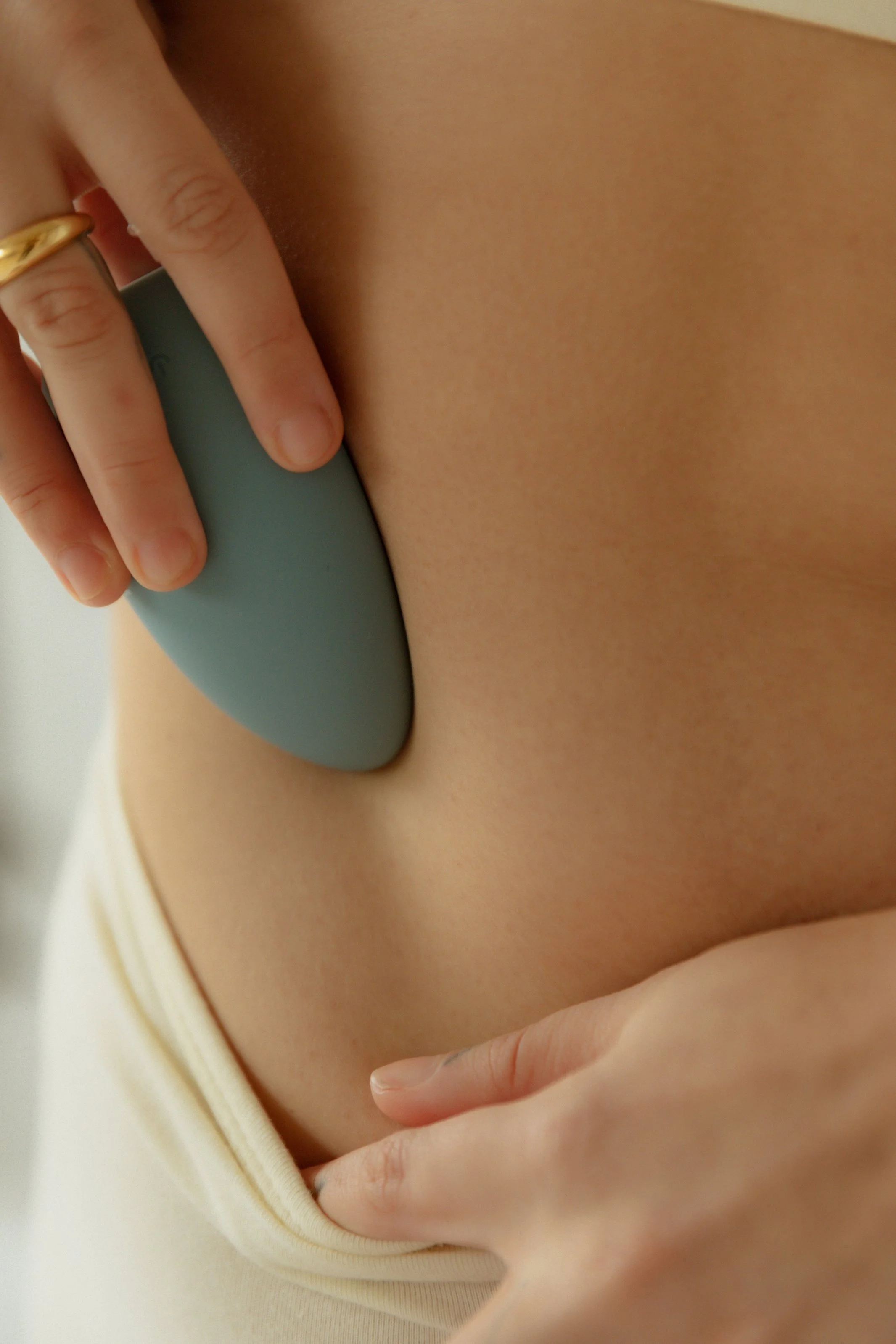Intimate skin pH levels, explained
If you've heard pH thrown around (even by us here at Bloomi) and are still unsure what it means, get ready to learn.
Our intimate areas deal with a lot throughout the day: sweat, urine, hair growth and, for some, menstruation or semen leakage. It's normal that when we hit the shower or bath, we want to (gently) scrub away the smell and gunk our intimate areas picked up during the day.
But sometimes our efforts to get squeaky clean, delicious-smelling skin can actually make things more funky and irritated down there. That's because intimate care washes often impact the pH levels of our intimate skin. Not sure what that means? We got you covered.
What is pH?
Put simply, pH, or the potential of hydrogen, is a unit that measures the acidity or alkalinity of a substance or an environment. Our bodies are pretty acidic. In fact, the pH level for skin is usually between 5.5 and 7. This acidity allows our bodies to fight off harmful bacteria.
But the pH level for skin varies across different parts of our bodies due to factors like exposure to the sun, humidity, pollution, sebum, acne or water. That’s why the pH level of our intimate areas, which are often hidden in the humid and damp climate of our undergarments, have a different pH level than, say, our exposed face or hands.
What does pH have to do with intimate skin?
Our intimate areas have distinct pH levels. In fact, the external skin in vulvas and penises have an average pH of 5.0. Any product that is used on this sensitive part of the body should have a similar pH level to prevent irritation or disruption of the skin’s natural microbiome. Internally, the vagina and anal canal are more acidic.
This acidity in the vagina naturally regulates the lactobacilli (protective bacteria) that makes up the flora and prevents the overgrowth of pathogenic bacteria. While pH varies in people with vaginas depending on age, race, or menstrual cycle, it's typically 4.2. The typical pH of the anus is between 7 to 8.
Differences in pH among some cis women of color
Interestingly, Black and Latinx cis women usually have a different vaginal microbiome makeup than white and Asian cis women that creates a naturally higher pH level. This means that it’s easier for Black and Latinx cis women to experience pH imbalance that could lead to bacterial vaginosis, yeast infections and other health infections when they are exposed to products with toxic and irritating ingredients.
What does it mean to be pH balanced?
Our intimate areas are ecosystems that work to maintain a balanced pH level to fend off unhealthy bacteria. But oftentimes our pH is challenged by external aggressors like temperature, humidity, intimate products, foods and even our hormones and genetics. If the pH in our intimate skin rises to the alkaline range, or gets off balance, there's a heightened risk for bacterial growth that could lead to discomfort and infections.
Body washes and bars of soap, which aren’t made for intimate areas, tend to have very high pH levels that disrupt intimate skin and can lead to irritated skin, microtears, yeast infections or bacterial vaginosis. For example, the average pH of intimate skin is 5.0, while the average pH of a body wash is 8.0.
Clean, plant-powered pH-balanced washes like Cleanse have a pH balance of 5.0-5.5 and don't contain intimate skin allergens that disrupt your pH balance. Similarly, Bloomi's lubricants, like the water-based Smooth and the oil-based Delight, pleasure oils like Desire, as well as our Nourish intimate skin moisturizer are all pH-balanced, so you can safely use them during playtime and/or during your intimate care routine.
Clean Intimate Care
Explore plant-based sexual wellness and self-care essentials for all bodies.
Importance of pH-balanced intimate skin products
Understanding that the external items we use on our intimate areas, like razors, restrictive or synthetic underwear, lubricants and hygiene products, can take our natural pH levels out of balance and, as a result, cause sensitivity, dryness, discomfort, burning and/or infections, it’s important that we are checking the pH levels of the intimate care products we use.
For instance, body washes and bars of soap, which aren’t usually made for intimate areas, tend to have very high pH levels (8.0-9.0) that disrupt intimate skin and can lead to irritated skin, microtears, yeast infections or bacterial vaginosis.
Clean, plant-powered pH-balanced washes like Cleanse have a pH balance of 5.0-5.5 and don't contain intimate skin allergens that disrupt your pH balance. Similarly, Bloomi's lubricants, like the water-based Smooth and the oil-based Delight, pleasure oils, like Desire, as well as our Nourish intimate skin moisturizer are all pH-balanced, so you can safely use them during playtime and/or during your intimate care routine.


